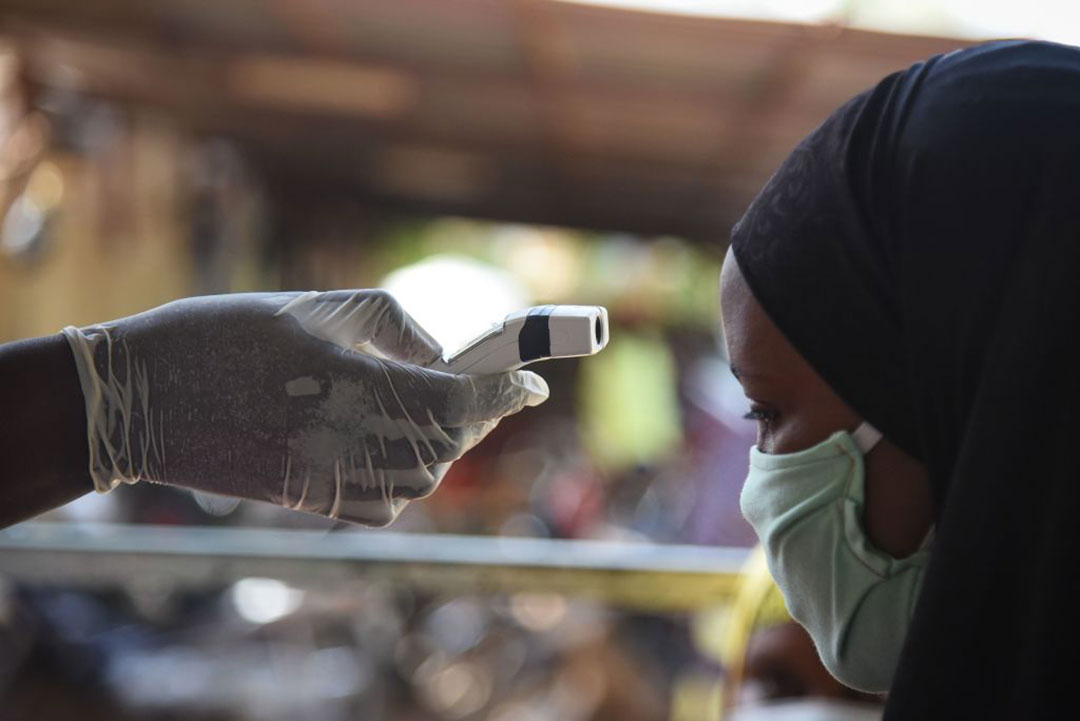Health Officials Urge Caution Amid Fears of COVID-19 Second Wave
ADF STAFF
As African nations prepare for a second wave of COVID-19, the Africa Centre for Disease Control and Prevention (Africa CDC) has encouraged immediate testing for anyone with symptoms and has urged countries to exercise caution in easing lockdown restrictions, such as reopening borders, schools and businesses.
When infection rates soared in South Africa in early December, President Cyril Ramaphosa reimposed a curfew and targeted lockdowns, limited alcohol sales, and closed beaches and most public parks.
The measures were announced after researchers discovered a new COVID-19 strain that seemed to affect young people more than previous strains. South African Health Minister Zweli Mkhize said the new strain was discovered around Nelson Mandela Bay and was “making young and previously healthy people severely ill.”
“The evidence that has been collated strongly suggests that the current second wave we are experiencing is being driven by this new variant,” Mkhize said in a report by South Africa’s TimesLIVE. Salim Abdool Karim, co-chair of the ministerial committee on the virus, said the second wave showed early signs that it is spreading faster than the first.
Mkhize criticized a group of about 3,000 17- and 18-year old students who recently gathered for a weeklong graduation party, after which many tested positive for COVID-19. Mkhize implored young people “to understand that this is now not just a matter of thinking about others, but you yourselves are now equally at risk of dying from COVID-19,” according to The Telegraph.
The Africa CDC guidelines were issued as infection rates in Burkina Faso, the Democratic Republic of the Congo, Mali, Mauritania, Niger, Nigeria and Togo met or eclipsed record levels, Reuters reported.
Experts say West and Central Africa experienced a relatively light first wave due to younger populations and timely governmental responses, including mandatory mask-wearing, border closures and bans on large public gatherings. But as economic woes spurred governments to ease restrictions, widespread adherence to social distancing, mask-wearing and hand-washing measures waned.
Mauritania, for example, reported 20 new COVID-19 cases a day in early November, but by mid-December, the number was up to nearly 300. After the first COVID-19 cases hit Mauritania, the government imposed a nightly curfew and closed schools, but mathematician Toka Diagana said those measures weren’t enough.
“What good is a curfew if we are unable to change our habits: drinking tea from the same glasses, unnecessary gatherings, eating in groups?” Diagana said on Facebook.
During an early December news conference, Nigerian Health Minister Osagie Ehanire blamed the country’s rising infection rate on community spread and travelers entering Nigeria.
Sani Aliyu, coordinator of Nigeria’s COVID-19 task force, said a second wave could be averted if people continued observing social distancing and refrained from gathering in large groups at Christmas.
“This is clearly a delicate period for the response,” Aliyu said at the news conference. “We may potentially be heading into an epidemic crisis, but there is still time to reverse this trend.”
COVID-19 has spared many parts of Nigeria’s Kaduna State, and Deputy Gov. Hadiza Balarabe wants to keep it that way.
“We need to [be cautious] now more than ever before,” Balarabe told Nigeria’s Channels Television news station. “If we [aren’t vigilant], we will see a surge in cases. It’s not going to be restricted to local governments. We’ll have it everywhere.”
Mali vowed to confront the second wave by enforcing mandatory mask-wearing and increasing screening at airports. The government also announced the temporary closure of bars, restaurants, fairs and schools.


Comments are closed.